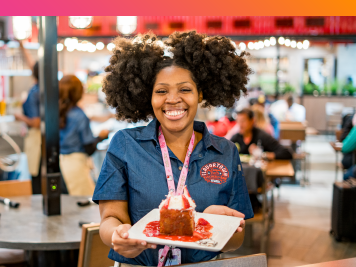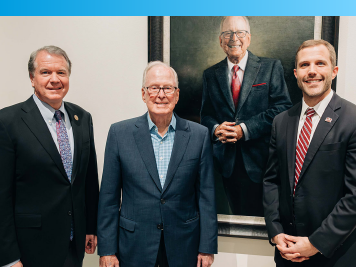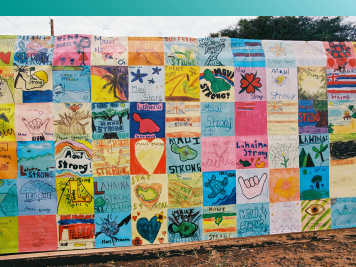Construction workers across the U.S. are facing an unprecedented challenge. Suicide rates in the construction industry are four times greater than among the general public—roughly 15 lives are lost to suicide every day. The contributing factors are many: stress, long hours, workplace injury, financial instability—and it doesn’t help that many turn to alcohol to cope. Industry leaders have noticed and are working to turn the tide on this troubling trend. In Wisconsin, those efforts are led by the Wisconsin Construction Wellness Community (WCWC), formed in 2022 by Marsh McLennan Agency (MMA) Senior Loss Control Consultant, Bruce Morton.
The idea for the WCWC first arose a couple years earlier. Morton works closely with construction companies on risk management in his role at MMA. He enlisted the help of industry leaders to develop practices and policies designed to destigmatize mental health challenges and help connect construction workers in need with resources to support mental health and well-being. The top-down effort includes industry-specific measures, such as free mental health first aid classes and informal group discussions called toolbox talks.
It also includes better access to in-person and virtual therapy sessions, and encouraging leniency and sensitivity from leadership toward employees’ need for time off for mental health care.
“We hit so many walls, but we just kept pounding on them,” says Morton. “The good thing is that the key players in the construction industry here in southeastern Wisconsin stood up and said, ‘Hey, if you’re going to be a subcontractor of ours, you’re going to be part of this program.’ It changed the whole environment.”
Morton’s passion for mental health care is fueled by experience. His son, now a high school senior, has been in treatment for mental health issues since kindergarten. Morton also suffered from anxiety following a traumatic episode.
“My wife and I made a decision that rather than continue to hide this and stay behind the stigma, we were going to become forward-facing,” he says. “There are people out there who need help or just need someone to listen to who’s been through it. And we can say that we’ve been through it, and we’ve become better for it.”
The deeply personal experiences gave Morton insight into the struggles his peers in the construction industry face. They allow him to exemplify the “three V’s.” He stresses that upper management be visible, vocal, and vulnerable (they even wear a special hard hat sticker that indicates they’re open to talk at any time). The strategy has proved to be effective.
“Every class, talk, or session we do, we always get a couple people coming up, and that shows our impact,” he says. “When someone comes forward, we refer them to something that could help them—a person, a website, a phone number, or someone else in their organization. Like how we have risk management crews, we now have mental health teams.”
Though Morton admits it was initially challenging to get some of the more seasoned workers on board, reception to the WCWC has been generally positive.
“The WCWC is more than a labor of love for my colleague, Bruce Morton,” says MMA Senior Regional Content Marketing Specialist Amanda Graff. “I have been lucky enough to support him as he talks to more groups and expands the network of who is hearing the message around mental health. For the people working hard to build the world around us, this feels like a foundation to help them also build resilience and care for themselves.”
Elizabeth Polheber, Senior Safety Manager at VJS Construction Services, Inc. says being a part of the WCWC has not only helped her business, but the industry as a whole.
“The message that is getting around about construction mental health is a key topic,” she says. “You need to be healthy—mentally and physically—to be able to work safely.”
Though it took a lot of people and businesses to make the WCWC successful, Morton is especially grateful for support from MMA. Whether through donations, allocating marketing resources, connecting him with medical and wellness consultants, or even hosting a meeting in his local office, the company stood behind him every step of the way.
“When I went to them with the idea—you know, it’s a time commitment that’s not technically part of my job—they said, ‘Yes, run with it and we’ll support you,’” he says.
“MMA is the only agency that I know of that can do that or that can support someone that has those needs—whatever that is, we can always find some way to help. And it’s just been amazing.”
To read more articles, explore our LIMITLESS Magazine.



